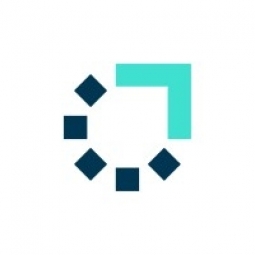Technology Category
- Sensors - Autonomous Driving Sensors
- Sensors - Environmental Sensors
Applicable Industries
- Equipment & Machinery
- National Security & Defense
Use Cases
- Agricultural Drones
- Demand Planning & Forecasting
Services
- Training
About The Customer
Meteomatics collaborates with various military organisations to improve observations and forecasts. These include the United States, the Swiss Armed Forces, and many other allied forces and neighbours, as well as international manufacturers of military supplies. These organisations rely on Meteomatics' technology to ensure the success of their operations in the air, on land, and at sea. They use Meteodrones and EURO1k to collect accurate weather data, avoid risks, ensure weaponry and vehicle performance, and increase operational success. As the climate gets warmer, these organisations will increasingly need more accurate weather data to adapt their infrastructure and supplies to the planet's new patterns and prepare for impacts on society.
The Challenge
The defence sector has always been significantly impacted by weather conditions, often determining the outcome of pivotal battles throughout history. Today, most military forces closely monitor the weather to avoid risks, ensure weaponry and vehicle performance, and increase operational success. However, the data from national meteorological services and traditional weather forecasting methods often fall short in providing accurate data, especially from the lowest part of the atmosphere where hazardous events form. Satellites, ground stations, and radars can only take remote measurements, while balloons and aircraft are limited to short timeframes and specific locations. Furthermore, national services cover limited domains and use different weather models, leading to inconsistencies and inaccuracies in weather forecasts. The military needs a more reliable and accurate weather forecasting solution to ensure the success of their operations.
The Solution
Meteomatics offers a solution to the military's weather forecasting challenges with its in-house developed tools: Meteodrones and EURO1k. Meteodrones are drones that collect data from the lowest layer of the atmosphere, flying through wind, storms, and icy conditions. They measure temperature, moisture, wind direction and speed, and atmospheric pressure at different heights as many times as needed. The data is encrypted and accessed locally, providing fast input about current conditions and improving the accuracy of forecasts. Meteodrones support a wide range of military operations, from paratrooper and artillery divisions to radar operations. On the other hand, EURO1k is a weather model that covers the whole European continent, plus North Africa, with a resolution of 1 km and hourly updates. It allows strategists to analyse one single high-resolution source instead of many sources with different resolutions, improving the execution of any military operation.
Operational Impact

Case Study missing?
Start adding your own!
Register with your work email and create a new case study profile for your business.
Related Case Studies.

Case Study
Smart Water Filtration Systems
Before working with Ayla Networks, Ozner was already using cloud connectivity to identify and solve water-filtration system malfunctions as well as to monitor filter cartridges for replacements.But, in June 2015, Ozner executives talked with Ayla about how the company might further improve its water systems with IoT technology. They liked what they heard from Ayla, but the executives needed to be sure that Ayla’s Agile IoT Platform provided the security and reliability Ozner required.

Case Study
IoT enabled Fleet Management with MindSphere
In view of growing competition, Gämmerler had a strong need to remain competitive via process optimization, reliability and gentle handling of printed products, even at highest press speeds. In addition, a digitalization initiative also included developing a key differentiation via data-driven services offers.

Case Study
Predictive Maintenance for Industrial Chillers
For global leaders in the industrial chiller manufacturing, reliability of the entire production process is of the utmost importance. Chillers are refrigeration systems that produce ice water to provide cooling for a process or industrial application. One of those leaders sought a way to respond to asset performance issues, even before they occur. The intelligence to guarantee maximum reliability of cooling devices is embedded (pre-alarming). A pre-alarming phase means that the cooling device still works, but symptoms may appear, telling manufacturers that a failure is likely to occur in the near future. Chillers who are not internet connected at that moment, provide little insight in this pre-alarming phase.

Case Study
Premium Appliance Producer Innovates with Internet of Everything
Sub-Zero faced the largest product launch in the company’s history:It wanted to launch 60 new products as scheduled while simultaneously opening a new “greenfield” production facility, yet still adhering to stringent quality requirements and manage issues from new supply-chain partners. A the same time, it wanted to increase staff productivity time and collaboration while reducing travel and costs.

Case Study
Integration of PLC with IoT for Bosch Rexroth
The application arises from the need to monitor and anticipate the problems of one or more machines managed by a PLC. These problems, often resulting from the accumulation over time of small discrepancies, require, when they occur, ex post technical operations maintenance.

Case Study
Data Gathering Solution for Joy Global
Joy Global's existing business processes required customers to work through an unstable legacy system to collect mass volumes of data. With inadequate processes and tools, field level analytics were not sufficient to properly inform business decisions.







